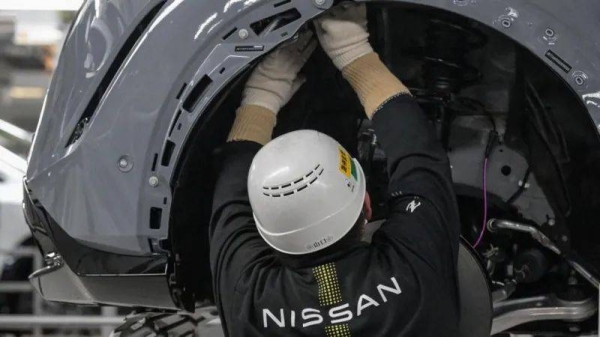Nissan is facing the need to lay off thousands of workers and reduce global production in response to declining sales in both China and the US. The company has announced plans to cut 9,000 jobs worldwide and reduce its global production by a significant amount. The specifics of where these job cuts will be made are still unclear, but Nissan’s manufacturing plant in Sunderland, North East England employs more than 6,000 people who may be at risk. Additionally, the company has lowered its operating profit forecasts for 2024 by 70%, marking the second time this year that it has revised its outlook. Despite these challenges, Nissan’s CEO, Makoto Uchida, insists that these measures are meant to make the company leaner and more resilient, rather than signaling a decline in operations.
The ongoing struggles faced by Nissan are largely attributed to growing competition in China and the US, with both markets presenting unique challenges to the automaker. In China, foreign car makers are finding it difficult to compete with local firms like BYD, which have been able to capitalize on falling prices and dominate the electric vehicle market. This has put pressure on companies like Nissan to adapt quickly to the changing landscape of the industry. In the US, inflation and high interest rates have impacted sales of new vehicles, forcing car makers to cut prices in order to maintain demand. This has ultimately affected their profitability and led to further challenges for companies like Nissan.
Nissan’s slow response to the shift towards electrified vehicles in China has been a key factor in its struggles in the market, according to industry experts. While China has become the world’s largest producer of electric vehicles, many Western car makers have failed to keep up with the pace of innovation and consumer demand in the region. As a result, Nissan and other Japanese automakers have found themselves falling behind their competitors and struggling to capture market share. The company’s lack of investment in electric vehicle technology in China has ultimately impacted its ability to compete effectively in the market.
The challenges facing Nissan in both China and the US have prompted the company to take drastic measures to cut costs and streamline its operations. In addition to the planned job cuts and production reductions, Nissan has also implemented salary cuts for senior executives, including CEO Makoto Uchida. The company’s decision to reduce executive pay is seen as a symbolic gesture of solidarity with its workforce, as it seeks to navigate through a challenging period of transition and uncertainty. Despite the short-term impacts of these cost-saving measures, Nissan is hopeful that they will help the company to become more efficient and better positioned to weather future market fluctuations.
Looking ahead, Nissan has announced plans to invest in the production of electric vehicles at its Sunderland factory in the UK. The company aims to build three electric car models at the plant, including the electric Qashqai and Juke models, as well as the next generation of the electric Leaf. This investment signals Nissan’s commitment to transitioning towards electrified vehicles and meeting the changing demands of the global automotive market. By focusing on the production of electric vehicles, Nissan hopes to gain a competitive edge in key markets like China and the US, where demand for eco-friendly vehicles is on the rise. Ultimately, Nissan’s ability to adapt to these challenges and innovate in the electric vehicle space will play a crucial role in determining its long-term success in the turbulent automotive industry.










